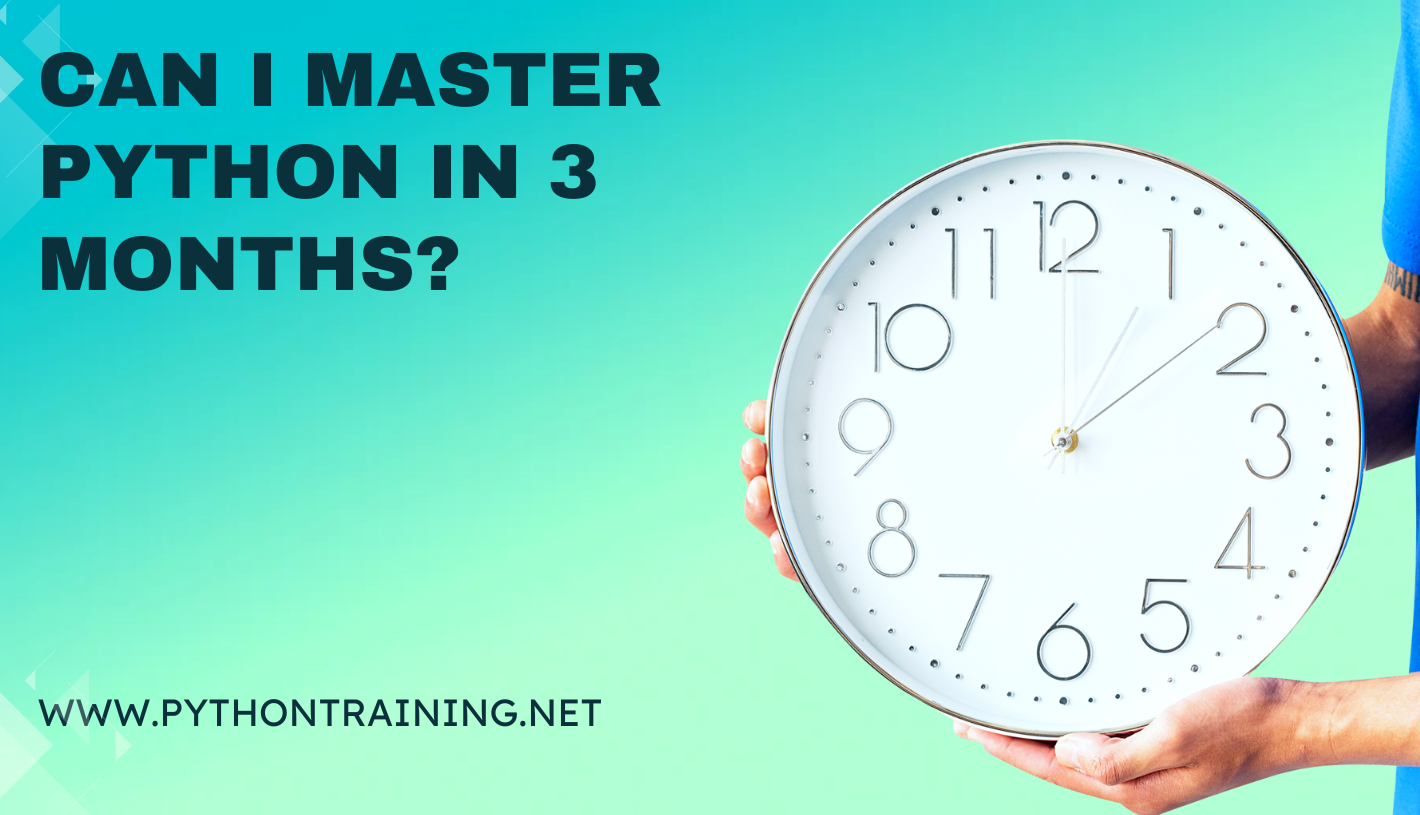Can I Master Python in 3 Months?
Python, a versatile and powerful programming language, has gained immense popularity in recent years. Its simplicity and readability make it an ideal choice for beginners looking to enter the world of programming. If you’re eager to learn Python and wondering if it’s possible to master python in 3 months, this article will provide you with insights and guidance to help you on your journey.
Introduction
Python has gained recognition as one of the most beginner-friendly programming languages. It offers a gentle learning curve and an extensive ecosystem of libraries and frameworks. While mastering Python in three months might be challenging, it is certainly achievable with dedication, focus, and a structured approach.
Understanding Python Basics
To embark on your Python learning journey, begin with the fundamentals. Start by installing Python on your computer, selecting a version compatible with your operating system. Once installed, familiarize yourself with variables and data types, control flow statements (such as loops and conditionals), functions, and modules.
Exploring Python Libraries
Python’s strength lies in its extensive library support. As you progress in your learning, explore popular libraries like NumPy for scientific computing, Pandas for data analysis, and Matplotlib for data visualization. These libraries will expand your capabilities and help you work efficiently with large datasets.
Object-Oriented Programming in Python
Understanding object-oriented programming (OOP) is essential for building robust and scalable applications. Python’s OOP capabilities allow you to create classes, objects, and methods, facilitating code organization and reusability. Mastering OOP concepts will enhance your Python proficiency.
Web Development with Python
Python’s versatility extends to web development, making it an excellent choice for building dynamic websites. Dive into web frameworks like Django and Flask to develop powerful and feature-rich web applications. These frameworks provide the necessary tools for handling routing, databases, and user authentication.
Data Science and Machine Learning with Python
Python’s popularity skyrocketed with the rise of data science and machine learning. To unlock the potential of Python in these fields, explore libraries like Scikit-learn for machine learning algorithms, TensorFlow for deep learning, and Keras for building neural networks. Acquiring these skills will open doors to exciting career opportunities.
Building Projects and Practice
As you progress in your Python learning journey, it’s crucial to apply your knowledge by building projects. Practice coding regularly, challenge yourself with real-world scenarios, and contribute to open-source projects. Practical experience will reinforce your understanding and boost your confidence.
Joining Coding Communities
To accelerate your learning and stay motivated, join coding communities and forums where you can interact with fellow Python enthusiasts. Participate in discussions, seek guidance, and share your experiences. Engaging with a supportive community will keep you inspired and provide valuable insights.
Conclusion
Mastering Python in three months is an ambitious goal, but with dedication, consistent practice, and a structured learning approach, you can make significant progress. Remember that mastery is a continuous journey, and it’s important to embrace the learning process rather than focusing solely on the destination.
Throughout your Python learning journey, be patient with yourself. Programming can be challenging at times, but perseverance is key. Celebrate small victories and milestones along the way, as each step brings you closer to your goal.
In conclusion, while becoming a true Python master may take more than three months, it is possible to gain a solid foundation and proficiency within this timeframe. Stay focused, practice regularly, and leverage the wealth of resources available online. Python’s versatility and extensive community support make it an excellent choice for aspiring programmers. So, embark on your Python learning adventure and unlock a world of possibilities.
FAQs
- Is three months enough to become an expert in Python?
Ans- Three months can provide a solid foundation and proficiency in Python, but expertise comes with continuous learning and practice.
- What resources can I use to learn Python?
Ans- There are various resources available, including online tutorials, interactive coding platforms, books, and video courses. Choose the ones that align with your learning style and goals.
- How many hours should I dedicate to learning Python each day?
Ans- The amount of time you dedicate depends on your schedule and commitments. However, consistency is more important than the number of hours. Aim for regular practice to maintain momentum.
- What are some practical projects I can undertake to enhance my Python skills?
Ans- You can start by building a simple web scraper, creating a data visualization tool, or developing a basic game. Choose projects that align with your interests and gradually increase their complexity.
- Are there any prerequisites for learning Python?
Ans- Python is beginner-friendly, and no prior programming experience is required. A strong logical and problem-solving mindset can be advantageous, but anyone can start learning Python regardless of their background.
